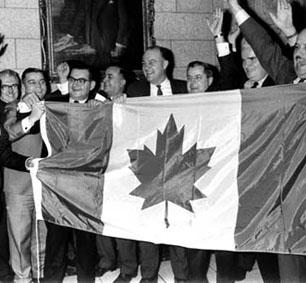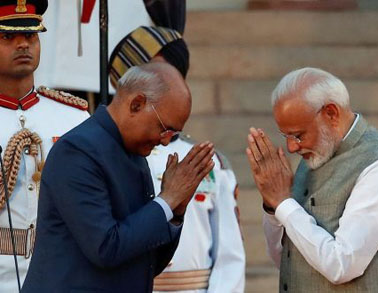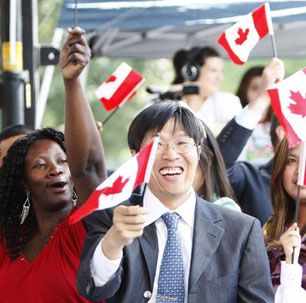Now the Toronto Star is saying “Those who want to ditch Canada’s monarchy will have to do better to make their case”
Jun 2nd, 2022 | By Randall White | Category: In Brief
ONTARIO TONITE. RANDALL WHITE, FERNWOOD PARK, TORONTO, 2 JUNE 2022. [UPDATED 6 JUNE]. This is the first day of the official celebration of Queen Elizabeth II’s 70th or platinum anniversary of what no less than the Toronto Star has called “her journey as the longest-serving monarch in British and Canadian history.”
(One might quibble about the “Canadian history” here. Serious monarchists in Canada today include the French monarchs to 1763 as part of this history, and Louis XIV was the Sun King of France for 72 years, from 1643 to 1715!)
Yesterday the Toronto Star joined the Globe and Mail — which on May 26 published its commemorative editorial entitled “Canada’s monarchy is here to stay. Embrace it” — in editorializing on the virtues of the British monarchy in Canada.
The Star, as Toronto’s alleged progressive or at least liberal newspaper, was not quite as aggressive in its support for what the late Toronto city councillor Tony O’Donohue liked to call (with a smile) “the offshore monarchy” in Canada. (A smile that would be warmly shared by the late Toronto civil rights lawyer Charles Roach.)
According to the Star editorial : “Those who want to ditch Canada’s monarchy will have to do better to make their case … ‘If those who oppose the Canadian monarchy can show how that can be done better with an all-Canadian model, then fine. But the burden of proof is on them.’”
The Star goes on : “There’s the obvious point that it would take a constitutional amendment to ditch the Canadian monarchy, which is baked into our constitutional arrangements through the role of the Crown as an institution (not the role of any individual … as monarch).”
Key to our system is parliamentary government not monarchy
But if you look at how our system actually works it is not the “role of the Crown as an institution” that is “baked into our constitutional arrangements.” It is the role of British-style or so-called “Westminster” parliamentary government.
And such other former self-governing British dominions and present-day parliamentary democracies as India and Ireland have shown that independent democratic ceremonial heads of state can serve Westminster parliamentary governments even better than the monarch who lives in Buckingham Palace in London, England.
The Toronto Star editorial also urges : “Anyone proposing that Canada overhaul its basic constitutional order will have to show what problem that is meant to solve.”
The first problem with the Star’s editorialists here is that, as just noted in the cases of Ireland and India, ending the role of the monarchy does not at all mean any “overhaul” of the “basic constitutional order” in a Westminster parliamentary government — in Canada any more than in Australia or any other of the dwindling number of remaining “Commonwealth realms” today. (And the new Labor government in Australia, eg, has just appointed an Assistant Minister for the Republic, Matt Thistlethwaite.)
Most of our basic constitutional order is largely “unwritten” in any case — which does not at all mean “nowhere written down”! As in, eg, Walter Bagehot’s classic on The English Constitution, first published in 1867, the same year as Canadian confederation and what we in Canada now call the Constitution Act, 1867. And then more recently republished with an introduction by the British Labour Party politician Richard Crossman in 1963, and more recently again as edited by Miles Taylor, a Lecturer in Modern History at King’s College in London, in 2001.
(And btw a cursory reading of the Constitution Act, 1867 may be what inspired some early 2022 Canadian Trucker Convoy leaders to imagine that the Governor General and the Senate could somehow get rid of a Canadian Prime Minister. Very much a document of Victorian England, it arguably needs some amending in the 21st century on several grounds.)
Selection of governor general an important constitutional problem in Canada today
The second and much more important point here is that there is a real constitutional problem in Canada today that finally moving away from what the Toronto Star also rightly notes is today’s mere “abstraction” of the monarchy is bound to ultimately resolve.
To start with the monarch in our kind of “constitutional monarchy” does retain some practical powers and even responsibilities in even the present-day governmental process. But in Canada this power is exercised practically by the resident governor general.

In Canada again (as in other so-called self-governing British dominions) — partly as an element in the ongoing expansion of Canadian democracy since 1867 — the appointment of Canadian governor generals finally wound up in the hands of Canadian (as opposed to British) prime ministers, starting in the 1930s and altogether locked in by the early 1950s.
Note too that it is not just the governor general the federal prime minister nowadays effectively appoints, but also the lieutenant governors of all 10 provinces. And then just federally it is the governor general to whom the prime minister must turn in such sometimes controversial matters as ending parliaments and calling elections.
This is very convenient for prime ministers. But does it make any sense at all for Canadian democracy — and what the Constitution Act, 1982 quietly but clearly calls “a free and democratic society”?
Can it finally, in a very practical way, really be credible in the challenging democratic future that does seem to lie ahead, for the prime minister to keep appointing the de facto head of state, to whom he or she is supposed to be somehow accountable or responsible in the basic constitutional order?
Wouldn’t Canadian governor generals, that is to say, be far more credible in today’s democracy if they were indirectly or directly elected the way the ceremonial successors to the office in India and Ireland have been with some success, since the early 1950s in the one case and the late 1930s in the other?
And if provincial as well as federal legislatures (and some Indigenous organizations?) have some role in the nomination of candidates or even actual voting for the democratized all-Canadian model of Governor General of Canada, might that not help persuade all 10 provincial legislatures to support a constitutional amendment on the monarchy?
Westminster” or British-style parliamentary institutions of government have served Canada well
In any case, there certainly is something to be said for the current Canadian model of government — and Canadian federalism (and the civil law in Quebec, oil in Alberta, and so on) — that we have inherited from across the seas. But it doesn’t have anything to do with any kind of monarchy.
Put another way, like India or Ireland or Trinidad & Tobago, the new Canadian democratic republic of anyone’s realistic dreams will continue to be modelled on the established “Westminster” or British-style parliamentary institutions of government. They have served Canada well, ever since the European “year of revolution” in 1848 coincided with colonial “responsible government” in British North America (following the Canadian rebellions of 1837–1838).
As 92% of the majority “anti-monarchist” respondents to a much-mentioned recent Angus Reid poll do seem to understand, resolving what too many still apparently see as thorny constitutional issues is going to be challenging.
But this same emerging new majority is ready to do what it takes to move ahead, in a quest that Tony O’Donohue would say began with the new independent Canadian flag of 1965.
Both the recent vaguely and not-at-all-vaguely major Toronto newspaper confessions of support for what does remain the British monarchy in Canada finally remind me of the conclusion to Percy Robinson’s still path-breaking book of 1933, on Toronto during the French Regime, where Toronto is called “the citadel of British sentiment in America.”
Some nine decades later some of all this still lingers in Canada’s largest 21st century metropolis, just starting to struggle with its own new future on the horizon (especially among the various self-confessed Canadian establishments that still haunt the local scene). But there are answers to the questions the Toronto Star raises. Even if it will no longer be part of exploring these answers for the very intriguing Canada that lies ahead itself — even after Doug Ford wins today’s Ontario election, still flying an old British North American flag with the Union Jack in the top left corner … [and in an election with a voter turnout of only 43.5% : by some distance the lowest in Ontario history since 1867].



